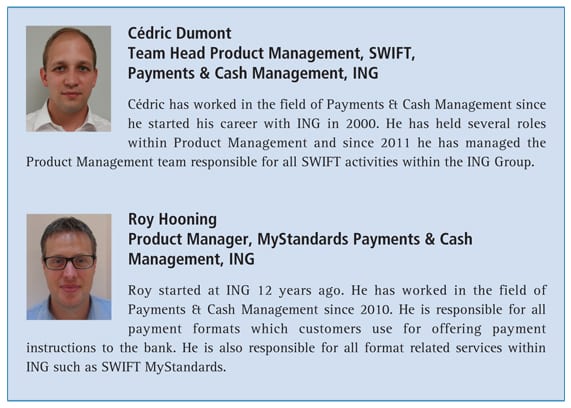After the Ballots
How the ‘year of elections’ reshaped treasury priorities
Published: October 29, 2012

For many years, corporate treasurers and finance managers have struggled to simplify their bank communication, hindered by multiple proprietary systems with different security and integration requirements, and diverse formats. While individual banks such as ING have worked hard to optimise the functionality and integration capabilities of their proprietary systems, and continue to do so, this only goes so far in resolving the challenges of multi-banked corporates. Today, however, corporates have unprecedented opportunity to rationalise their bank communications through a single channel, and standardise file formats using XML-based standards. As part of our ongoing commitment to enhancing our customers’ experience and make it as easy as possible to do business with us, ING is pioneering some important innovations in the areas of both connectivity and format standardisation.
Corporate access to SWIFT has evolved from being the domain of the world’s largest, most sophisticated corporations to a realistic connectivity choice for a wide spectrum of companies, particularly multinational companies with more than one banking partner. We are witnessing a major expansion in adoption amongst both large multinationals and also smaller organisations, signalling that SWIFTNet has now emerged as a mainstream corporate connectivity solution.
There are a number of factors contributing to this expansion:
Early corporate adopters often had to dedicate considerable technical resources to accessing SWIFTNet, the SWIFT network, but with a number of professional service bureaus now offering proven and mature services to corporate customers to facilitate SWIFT connectivity; it is now far easier for corporate users to communicate with their banks in this way. Costs have also fallen considerably since corporate access opportunities were first unveiled. Although SWIFT’s web-based tool Alliance Lite has received relatively modest attention until now from the corporates market, the new version of this service is likely to encourage a larger number of mid-market corporates to connect to SWIFT, as it offers a wider range of services and greater volume capabilities whilst still providing cost-effective, convenient access to SWIFT. The challenge remains to facilitate the integration of the customers’ own organisation and systems and the SWIFTNet connectivity.
At ING, we have actively evolved our skills and services to support corporate access to SWIFT in line with this increasing adoption by our customers. We are now positioned as a leading SWIFT bank, with a series of initiatives to enhance our customers’ experience of SWIFT connectivity and make it as easy as possible to take advantage of ING services through the SWIFT connectivity. For example, we have streamlined the implementation process including simplifying and standardising associated documentation such as contracts, implementation guides, format and standard guidelines etc. Our customers tell us that this has already been a major step forward in their experience of SWIFT implementation, as the scale and complexity of documentation has often been an obstacle to corporate adoption in the past.[[[PAGE]]]
In addition to enhancing our own processes, documentation and services, we are also working with SWIFT to find ways to enhance the corporate experience further. This collaboration has resulted in ING becoming one of the first banks to be awarded the prestigious Bank Ready Certificate for Corporate Access in March 2011. This certification was just the first step in proactive co-operation between ING and SWIFT. For example, we have been a pioneer in SWIFT’s MyStandards initiative, which is launched this autumn. MyStandards is a collaborative web platform to help manage standard definitions for financial messaging. By providing a central repository of format and usage guidelines, users can search for content in a structured way, access information easily and communicate with other users to share experiences and best practices.
We have been proactive in our support of MyStandards as we recognise the benefit of a central framework for storing, accessing and collaborating on format guidelines. Indeed, we had been working on a similar initiative internally before the launch of MyStandards, so we have been very keen to lend our support to this important development
Customers have been very positive about the prospect of MyStandards and have welcomed ING’s pioneering role in its introduction. For example, by working closely with SWIFT from the moment we stepped in, we have been able to offer input into the functionality and features that MyStandards offers to customers. Other banks and their customers will also participate in MyStandards, further enriching the quality and scope of information that is available and deepening collaboration opportunities.
SWIFT connectivity is continuing to become easier and more cost-effective, stimulated by initiatives such as ING’s streamlined approach to implementation documentation. In addition, a growing range of services is becoming available, not only supporting payments and cash management, but across the full spectrum of bank to corporate interaction such as trade services. However, the most significant developments underway at present are those that seek to standardise and simplify XML-based file formats. MyStandards has a considerable role to play in facilitating the development, publication and adoption of standards that will simplify and enrich financial messaging. We will continue to support MyStandards proactively as part of our commitment to enhancing our customers’ experience of working with ING and making it easier for them to exchange information with us.
